"What would it mean to live life as lightly as possible?" asks the exhibition School of No Consequences. Exercises for a New Life at the Museum für Kunst und Gewerbe Hamburg, "what would it mean to live life in a way that had as small an impact as possible?"
What indeed......
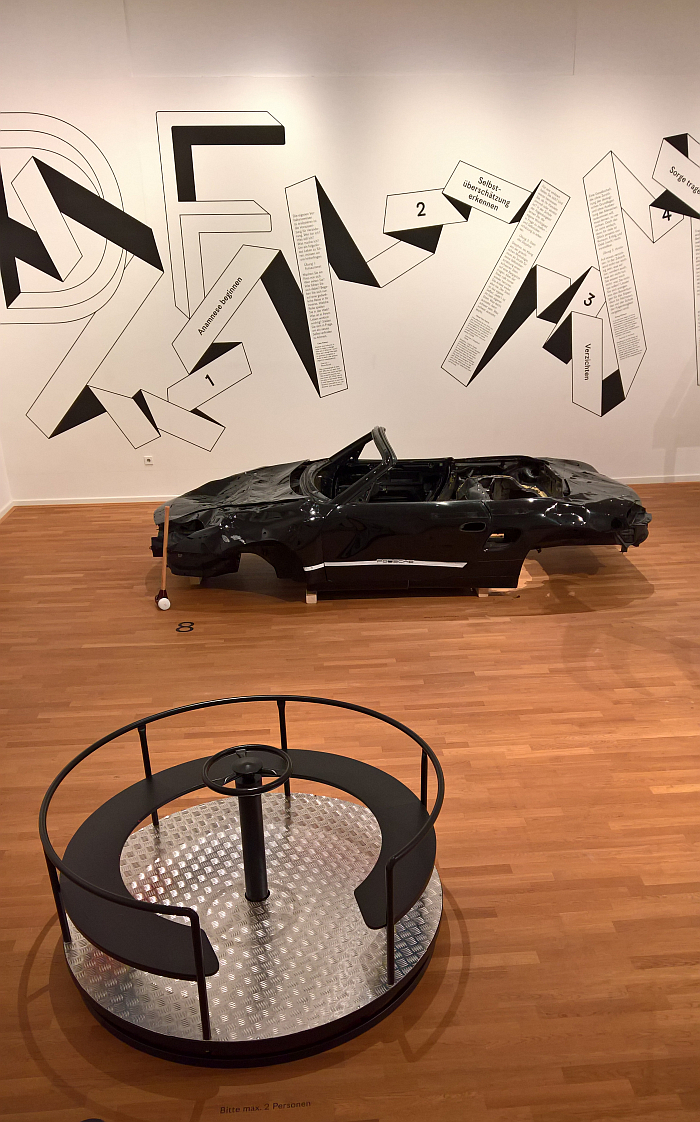
Initiated by Friedrich von Borries and staged by the Museum für Kunst und Gewerbe in cooperation with Hamburg's Hochschule für bildende Künste, School of No Consequences. Exercises for a New Life, is more manifesto than exhibition, is a discoursive platform which proposes replacing the all-pervasive term "sustainability", a term the school's initiators hold for too limited, too restrictive, with "no consequences", a term which can be understood, interpreted, in a myriad, often contradictory, ways. And inherent contradictions of understandings and interpretations which, so School of No Consequences, can be employed "as a starting point for a discussion on different individual and societal responses and actions", with the aim of opening "a new outlook in vital socioeconomic transformations, to question the guiding assumptions in our lives and supposedly universal ideas of a "good life" and to imagine new ways of living life lightly".
A discussion, questioning and imagining the School of No Consequences launch via a triumvirate of showcases in and throughout the Museum für Kunst und Gewerbe, MKG, Hamburg.
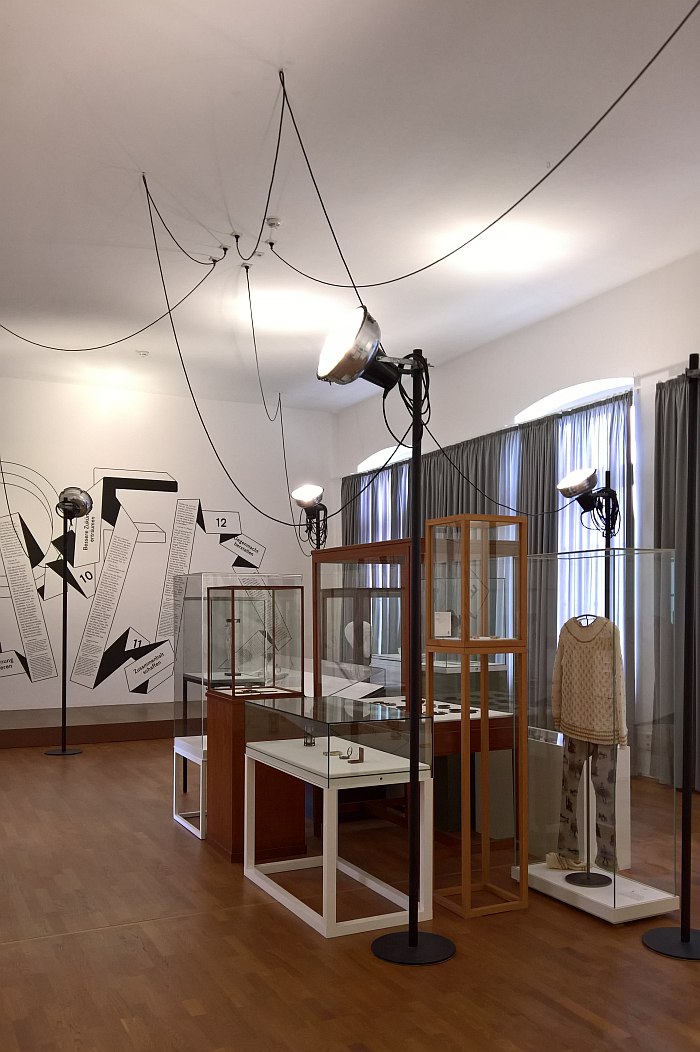
Although there is no formal order via which to view School of No Consequences, or least not one we are/were aware of, the optimal entry point is inarguably through the Schaudepot, the smallest of the trio of showcases and which through a presentation of objects selected from the MKG's permanent collection allows for a concise introduction to the 12 Labours which comprise the School of No Consequences' Herculean curriculum, including: Labour 5, Forgoing Decisions, introduced via dice used in times past as the basis for decision making processes and which represent not only an alternative to the "burdensome" chore of undertaking such yourself, but the necessity to "open ourselves up to the inconceivable" if we are to live lighter; Labour 6, Waiting, which no-one does these days, but which all will in a world without consequences, and introduced via clocks, because, as we all know but feverishly pretend we don't, "time is a commodity of capitalism" not our friend; or Labour 3, Doing Without and its discussion on the ritual sacrifices practised by previous civilisations and which, according to School of No Consequences, were "part of the reciprocal do ut des principle whereby one gave in order to receive", adding that "today, too, renouncing practices that harm the environment and others help create a better world". A statement which, apart from anything else, very neatly underscores the playfulness with which School of No Consequences attempts to stimulate a discussion, questioning and imagining; underscores that although the School of No Consequences curriculum involves a whole array of very fundamental questions and complex positions, you never have the feeling of working your way through a sociological/philosophical/anthropological/theological essay. Although that, in effect, is exactly what you are doing.
And because theory is nothing without practice, or rather, and perhaps better put, without practice theory is no more than that. And without theory, practice is just random doing. After the Schaudepot comes the Selbstlernraum - the Exercise Room, the Task Room.
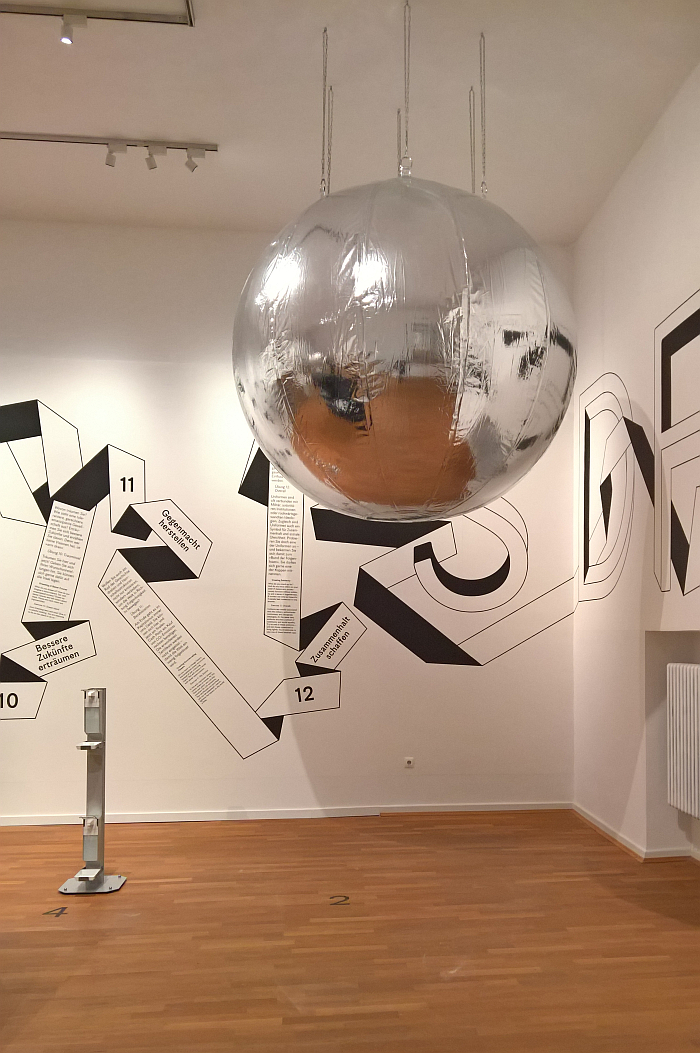
The first exercise of which is a photo-booth, and the task of having your photo taken. And no, not a photo to be posted on social media to show-off that you're in a museum. But a photo which continues the considerations of anamnesis, retrospection, begun with mirrors in the Schaudepot. A photo which serves as an aid for the questioning of ourselves, for the self-analysis, School of No Consequences understands as necessary for living the inconsequential, light, life it argues we could, should, must?, live. A photo which challenges you to ask, What do you see? What role do you play in the world? What is truly important in your life?
And a photo which at Labour 7, Leave no Trace, one is encouraged, ordered, to shred, by way of...... well, leaving no trace. Including no social media trace. Your eyes may dampen at Labour 1 and/or 7.
Elsewhere the Selbstlernraum sets visitors the tasks of, and amongst others, Labour 4, Being Considerate, introduced via a hand disinfectant dispenser which, inarguably, was the height of consideration to others when School of No Consequences opened, but, arguably, has since been superseded by getting yourself vaccinated; Labour 9, Losing Control, which asks "When did you last lose your sense of control?" and for all who don't answer, "Lose!?!? When did I last posses a sense of control?" there is a small roundabout in which to spin yourself dizzy; or Labour 8, Destruction.
"Take this hammer" the task begins, "and give that old Porsche a few new dents". Alternatively, additionally, observe other visitors as they approach the task: follow them as they read the task, as they look at the hammer, look at the Porsche (chassis, not whole car), understand the task, query if they have understood the task, check to make sure there is no-one from museum security present - just in case they have seriously misunderstood the task - re-read the task, look at the hammer, look at the Porsche (chassis, not whole car), re-read the task, THWACK. A dull, metallic, echo rings through the MKG. And that they didn't get in trouble for doing it, they do it again. And again. THWACK. THWACKTHWACK. The enjoyment all too evident. If at that moment of joy they appreciate that they are destroying one of the primary objects of popular desire, one of those so-called status symbols by which society, certainly European society, measures the success or otherwise of its individuals, a consumer of resources that contributes only but little to the development of a fairer and more equitable society, an embodiment of the selfishness of the human ego in a world of need, is less clear. THWACK. If at that moment they are reflecting on Labour 1 and the question, What is truly important in your life? ? THWACK.
And thus a task not only reminiscent of Father Ted's famed attempt at tapping out a dent, but a task which as a metaphor is every bit as satisfying as the metaphor of the inevitable reality of all our attempts at tapping out life's dents, "I thought I had it there a while ago you know ... but like an eejit I had to keep banging away".
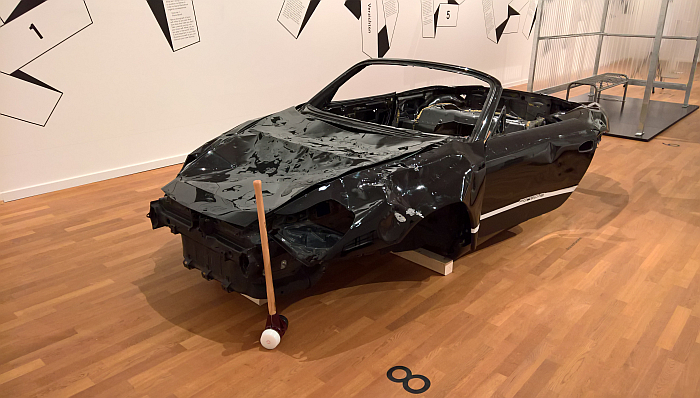
If one considers the Selbstlernraum and Schaudepot as the classrooms and laboratories of the School of No Consequences, the third component is a school field trip into and through the wider expanse of the MKG's permanent collection exhibition; a field trip which allows one to approach that advanced and experienced in the Selbstlernraum and Schaudepot from new, alternative, perspectives.
Labour 4, for example, takes the considerations on amulets in the Schaudepot and the hand disinfectant dispenser in the Selbstlernraum in context of Being Considerate, to consider Washing Your Hands of the Matter, and which in doing so awakens memories of the project Cleaning against the Dictatorship of Efficiency by studio b severin, specifically its considerations on the links between moral and physical cleanliness. Considerations undertaken by School of No Consequences in the European Decorative Arts and Sculpture Department via 13th century CE aquamanilia used by 13th century CE Christians to symbolically wash their hands, and by extrapolation their conscience, just as Pontius Pilate washed his hands of his guilt after ordering Jesus's crucifixion, and moves on from there to reflect on our Corona era where "handwashing is an act performed not solely to benefit oneself, but also others", and further on to reflections of the myriad responsibilities we all have to others, and where symbolically washing our hands before rather than after the fact may be beneficial, certainly considerate.
Labour 8 which moves on from the Destruction of the seriously thwacked Porsche of the Selbstlernraum and the broken ceramic fragments of the Schaudepot to consider The Beauty of Destruction, or rather the beauty that can arise from destruction. A discussion undertaken in the East Asian Art Department via examples of kintsugi, the traditional Japanese technique of repairing broken porcelain with gold lacquer, and the considerations on both the new beauty that arises through the repair and also the increase in the inherent value implicit in the decision to repair rather than throw away, the dedication and precision of the act of repairing, and the communion with the object that thus arises, before moving on to ask "could we put together the pieces resulting from industrialisation to form a better future?" Which is one of the bigger leaps School of No Consequences makes, one of the loser metaphors it constructs. While, we'd argue, remaining coherent and comprehensible. And relevant. And leading into the question of how that thwacked Porsche could, should, must? be reconstructed?
Labour 5, Forgoing Decisions, freeing ourselves from the "burdensome" chore of making decisions, which in the Schaudepot was approached via dice, in the Selbstlernraum via a Wheel of Fortune and in the MKG's Islamic Art Department via an Iranian Bird Man statue as an example of a conduit between the Gods and humanity, and where the question is posed, "wouldn't it be wonderful to have a higher power with superior knowledge that could help us make decisions?" The mention of "high-tech companies" and "artificial intelligence" in the subsequent sentence, hopefully, sharpening your focus as to just how wonderful that might be, how burdensome making decisions really is, how burdensome the wonderful alternatives could be(come). Certainly demands reflections on the naivety we ascribe previous generations for believing in fantastical deities, in Bird Men, while we gaily and unquestioningly delegate ever more decisions to Californian technology. To consider the naivety future generations will ascribe us for our belief in our phones. Unless that is our belief in our phones, our belief in the infallibility of technology, and the resource usage we thereby knowingly give rise to, leads humanity to its untimely end.
As ever, that decision is ours, individually and collectively.
And equally as ever, is a decision, i.e. there are alternatives.
Such as inconsequentiality?
"What would it mean to live life as lightly as possible?", "what would it mean to live life in a way that had as small an impact as possible?"
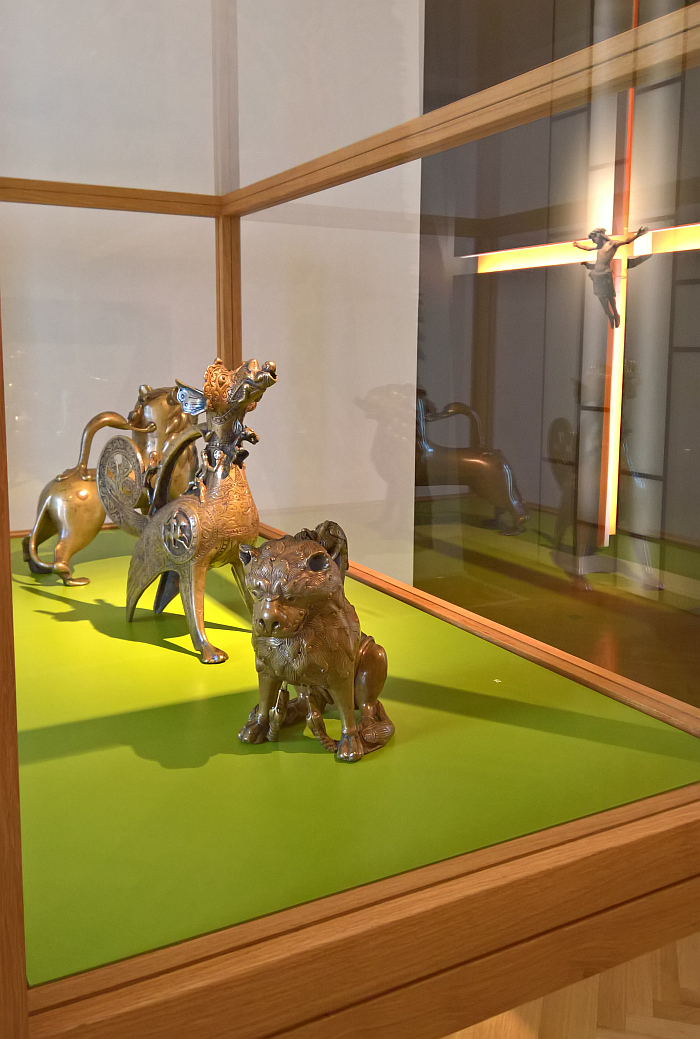
As an exhibition, as three exhibitions, School of No Consequences doesn't, can't, directly answer such questions; rather, it makes clear that it believes the answers would be of the positive type, makes clear it believes doing such would be for the common good, but primarily it establishes a framework which allows you to not only approach answers of your own, but to question the validity, to question the navigability, of the proposed path.
And does so both through its own discussions, and also through the reflections and considerations engendered by the field trip through the MKG's permanent collection exhibition; an intervention which when not quite a Spaziergang à la Lucius Burckhardt is very much of that ilk, in that finding your way to the widely strewn 12 objects forces you to visit parts of the MKG you may normally never visit and thereby to find yourself in conversation with objects you may normally never meet, and which thereby not only extends your perception of the MKG and its permanent collection, but enables you to, demands you, use all of the objects in that permanent collection exhibition as sounding boards for your reflections on School of No Consequences' arguments and positions, and thereby to consider the arguments and positions in innumerable disparate contexts, not just those the School of No Consequences has selected. And having begun such in the MKG's permanent collection exhibition, you continue outside the MKG; if one so will the School of No Consequences sets you as homework the task of using the objects and rituals of daily life as you experience it as sounding boards for reflections on inconsequentially, and also reflections on the school's questioning of the validity and value of the term "sustainability", on the school's preference for "no consequences". And thereby not only reflections on your personal inconsequentiality in its myriad understandings and interpretations, but reflections on the way forward for our planet and societies.
For we all know that our planet and societies aren't in the best of healths. We've all know that for generations, have all avoided for generations openly accepting such as feverishly as we pretend not to know "time is a commodity of capitalism", and we all hoped that if we ignored it, it would get better. It got worse.
And still we all hope we can find some wiggle room that will allow us to carry on as we want: that if we offset the carbon emissions of our flights, then it'll all be fine; if we stop eating industrially produced meat one day a week, then it'll all be fine; if we have autonomous cars and delivery drones, then it'll all be fine; if we let apps optimise our lives to make us more efficient, then it'll all be fine.
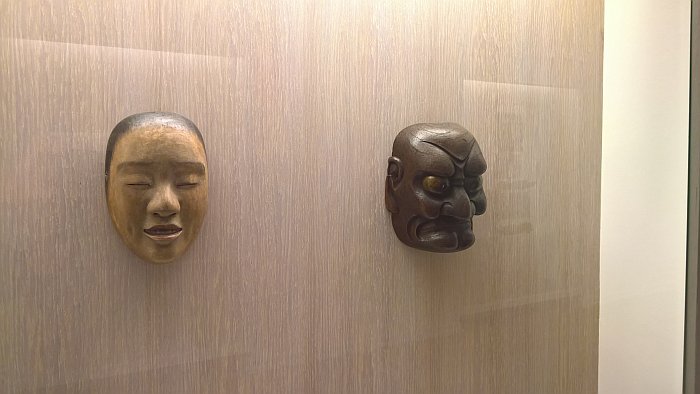
It won't.
Which brings us back to Cleaning against the Dictatorship of Efficiency. We all know not to litter, yet all occasionally do; we all know that we should clean our fridges, but never do; we all know that paying someone else to clean up after us is an abdication of responsibility which will negatively feed into and inform the way we view and approach the world. Yet our only concern is to pay them as a little as possible.
Similarly we all know that we should be more considerate, we all know that we should always aim to leave as small a trace as possible, we all know that we should act with more solidarity, or that we should THWACK a lot more of the things that will destroy us as individuals and as a community.
Which is one of the strengths of School of No Consequences, it doesn't present anything particularly new, it's all things you know, as so oft in school it is a well deserved scolding for either not doing that which you know you should have, or doing that which you know you shouldn't have; and which if accepted as such allows for differentiated considerations on the why we do what we do, the why we don't do what we should do and the where we could be, individually and collectively, if we adjusted our behaviour.
But who accepts scoldings in such an open and constructive manner? And who sulks that it, "wasn't my fault!!!"?
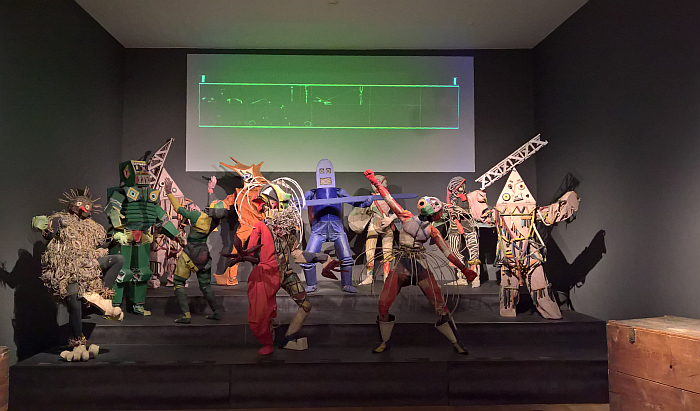
Left to his own devices Hercules would never have slain the Hydra of Lerna, would never have captured the Erymanthian boar, and it would never, ever, have crossed his mind to clean out the stinking, putrid, Augean stables. And certainly not in one day. But Hercules was a penitent on a path to redemption, and understood that there was no way round such, understood that however arduous his 12 Labours were, they had to be faced. Understood there was no wiggle room
From time to time we all need a bit of encouragement, need a bit of nudging.
School of No Consequences can supply that for us, as Pythia did for Hercules.
Not that School of No Consequences provides all the solutions for the future of humanity, not that School of No Consequences provides all the answers as to how we can move our planet and societies towards better health. School of No Consequences isn't Delphi. And knows that, freely accepts it can't be all the answers and solutions, openly acknowledges that the consequenceless life it proposes, demands, isn't possible, will never be possible; but doesn't understand that as a reason not to try. ¯\_(ツ)_/¯ never was and never will be an answer to anything. Hercules didn't ¯\_(ツ)_/¯
As a manifesto and discoursive platform School of No Consequences isn't answers and solutions but is a timeous, articulate, playful and entertaining appeal to consider our individual and collective inconsequentiality, or lack of; a timeous, articulate, playful and entertaining prompt to question what is meant by "sustainability", what we understand by "sustainability", and if that is enough; a timeous, articulate, playful and entertaining scolding to face up to our responsibilities rather than trying to wiggle out of them.
And if you do, if you don't sulk, if you approach School of No Consequences' 12 Labours not as a punishment for deeds done but as a discoursive proposal for going forward, as an aid to reflections on our behaviour and on the direct and indirect relationships between that which we do/don't do and our planet and societies, you may, possibly, arrive at the understanding that our path to redemption needn't necessarily involve capturing Cerberus, the diabolical hound of Hades, it might suffice if we were to be more considerate, to be more patient, to be more understanding, to be more cooperative, to be more open, and for all if we were to lighten up, materially and immaterially.....
School of No Consequences. Exercises for a New Life is scheduled to run at the Museum für Kunst und Gewerbe Hamburg, Steintorplatz, 20099 Hamburg until Sunday July 18th
Full details can be found at www.mkg-hamburg.de/school of no consequences
And as ever in these times, if you are planning visiting any exhibition please familiarise yourself in advance with the current ticketing, entry, safety, hygiene, cloakroom, etc rules and systems. And during your visit please stay safe, stay responsible, and above all, stay curious……
For all who can’t make it to Hamburg, or indeed all who can but wish to prepare, there is a School of No Consequences app, and a short video tour through the school courtesy of the Museum für Kunst und Gewerbe in the company of Friedrich von Borries (spoken German, English subtitles, ca. 4 minutes)